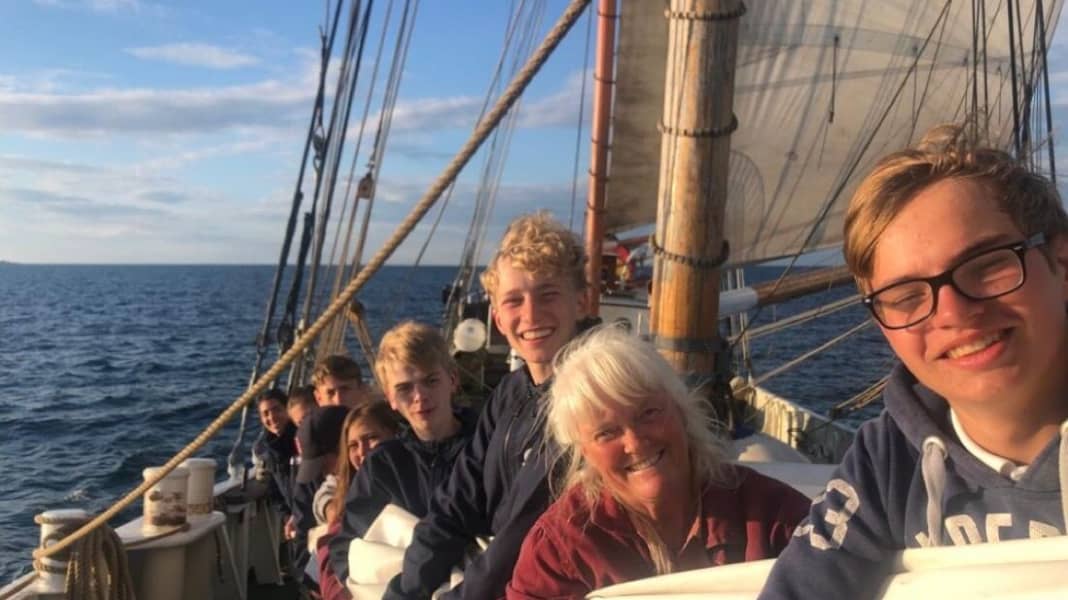
After a two-year break due to the pandemic, it was "Cast off!" again this year for the Ice Climate Education Camp. Nine participants aged between 14 and 18 with an interest in sailing and the environment had qualified for the ten-day trip on the Baltic Sea in a competition originally organised by Arved Fuchs. The sailing lugger "Ryvar", built in 1916, travelled from Flensburg to the Danish South Sea, around Funen and on to the island of Samsø.
The programme, which was partly accompanied by scientists from the Thünen Institute of Baltic Sea Fisheries, included studies, experiments and presentations relating to changes in the Baltic Sea and their future significance. One topic was the progressive warming of the seawater as a result of climate change and its already noticeable effects. The participants discussed possible countermeasures, such as climate-friendly energy generation using renewable energy sources instead of fossil fuels or the use of wind energy.
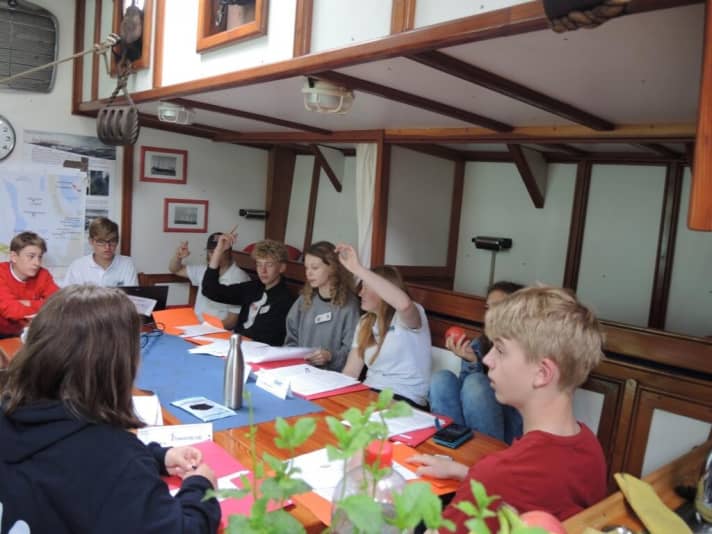
Excursions on land complemented and deepened the knowledge gained on board. A guided tour on the island of Samsø illustrated how an island can become energy self-sufficient with the help of wind energy and pass on surplus electricity.
In contrast, the participants were presented with a picture of the beach at Ballen on Samsø: the approximately 100 metre long stretch of shoreline was littered with rubbish ranging from countless plastic bottles to cigarette filters. Samples were collected, categorised and documented.
The young people researched the topic of seawater pollution with the help of a manta trawl, a wooden frame construction with a net. Water samples were taken and analysed for foreign substances. This was no easy task, as the narrow construction of the manta trawl is only stable and horizontal on the surface of the water at a speed of approx. 2.5 knots. The speed of the old sail logger had to be adjusted accordingly. For the participants, this meant a lot of work on the sails.
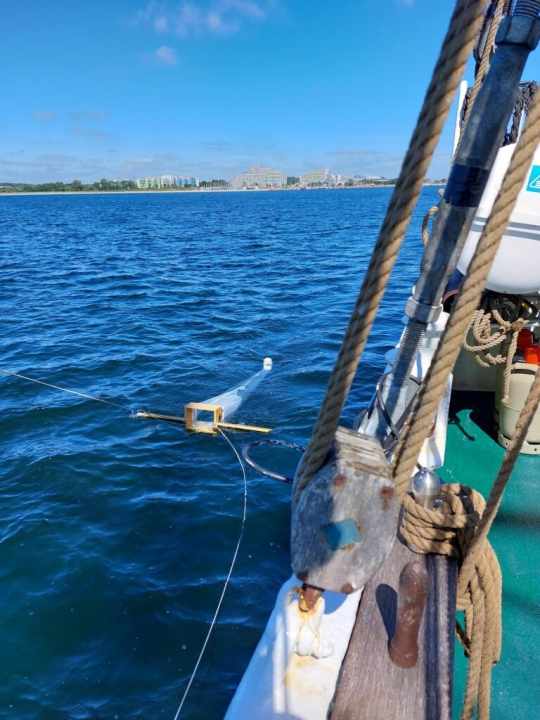
The particles filtered out were analysed under a microscope on board, evaluated and documented. Findings of microplastics and other artificial substances were, to the dismay of the participants, consistently present, albeit in varying concentrations depending on the location. In the Eckernförde Bay catchment area, for example, an increased number of threads made of synthetic fibres were found, which probably originated from discarded fishing nets and ropes. The young people passed on their findings to the organisers of the "less is more" project, who are trying to take a holistic view of the environmental pollution problem.
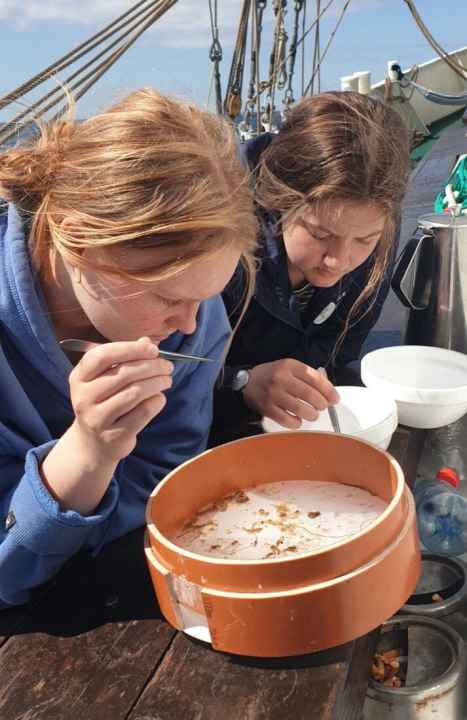
Sailing on the traditional sailing ship "Ryvar" was not neglected either: the camp participants were challenged with every manoeuvre, guided by the ship's crew of two. The young people also received an introduction to nautical basics such as navigation with a map and compass. The simplicity of the tools available on board, in contrast to today's digital world, amazed and inspired the participants in equal measure. This was also important to Arved Fuchs, who joined the event live from Iceland on board his shark cutter "Dagmar Aaen", on which he was travelling on the next stage of the expedition series that has been running since 2015. "Oceanchange" prepared.
Among other things, Fuchs reported on the idea and creation of the I.C.E. Camp through to his current series of expeditions. An open round of questions and discussions on the topics of environmental protection, expeditions and sailing concluded the conference.
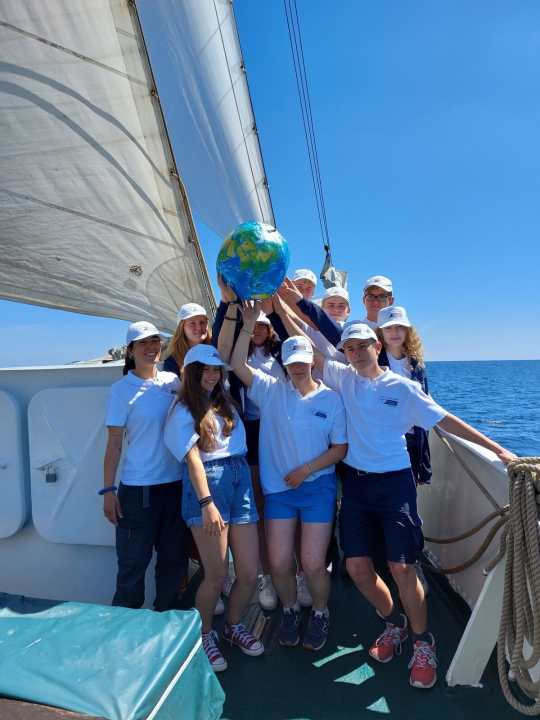
On their return, the young people will report on their experiences and findings at their respective home schools and, last but not least, pass on the enthusiasm they have gained for sailing to their fellow pupils.

